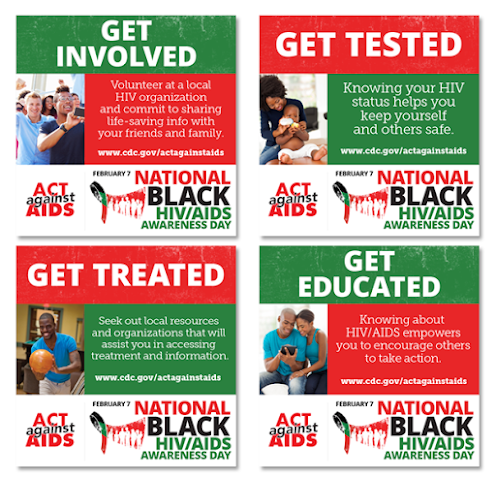This date, February 7, annually, is National Black HIV/AIDS Awareness Day. This observance, sponsored by the larger Black community, is primarily targets the awareness of factual concerns not only just among the African-American population but also the general population.
National Black HIV/AIDS Awareness Day (NBHAAD) was first formulated in 1999 and the first observance occurred in 2000. The major reason for this event was the need for a national cultural response to the alarming rise of HIV infections and AIDS diagnosis within the Black community.
There are four primary goals for NBHAAD:
1. Get educated about HIV/AIDS. Know the facts and dispel the myths.
2. Get involved in community prevention efforts. Show and share as much as you know to as many as you know.
3. Get tested and know your status. Knowledge is power and helps to make a difference.
4. If infected, receive treatment. Learn how to life a happy and healthy life.
The governing body and sponsor of NBHAAD is the Strategic Leadership Council. The SLC offers guidance, direction and support to encouraging more active and engaging involvement of the African-American community in order for the continued success of NBHAAD.
The NBHAAD was conceived by five organizations funded by the U. S. Centers for Disease Control and Prevention (CDC) in 1999 to provide the capacity for building a community resistance to the spreading of HIV, the virus that causes AIDS. The mobilization of communities began in 2000 with the Concerned Black Men, Philadelphia; Health Watch Information and Promotion Services; Jackson State University - Mississippi; Urban Research Center; National Black Alcoholism and Addictions Council and National Black Leadership Commission on AIDS.










No comments:
Post a Comment